
Pecha Kucha Samba
Pecha Kucha* Nights were brought to life in 2003 by architects Astrid Klein and Mark Dytham, Europeans settled in Tokyo, founders of the architectural studio Klein Dytham architecture. They wanted to create a space for meetings of architects, designers, and creative creators from various fields, where they could exchange inspiration in an informal spirit. And since informal doesn’t mean shapeless, but merely relaxed, they established a basic rhythmic framework for the evening, which each participant fills according to their own style. They devised a brilliant way to give people space to present their work while preventing them from exhausting the audience: each speaker shows 20 images, each one remaining on the screen for 20 seconds. In total, this gives them 6 minutes and 40 seconds, and then, thank you, next. Thus, on one evening, an average of 14 authors are presented at a brisk pace. The patented format of Pecha Kucha Nights has proven successful, so these evenings are now held in 34 cities around the world, with at least twelve more in preparation.
On Tuesday, February 20, 2007, at 20:20, the first Prague Pecha Kucha Night kicked off at the Aero cinema in Žižkov. The full hall was energized by the performance of percussionists from Prague's samba school: rhythmic changes in an unrelenting tempo set the atmosphere for the entire evening. The organizer of Prague's Pecha Kucha, Jana Kostelecká, had a good hand in selecting the speakers: she mixed personalities from different fields who probably would not have met on the same stage under other circumstances. Just from the list of architects, it becomes clear that Pecha Kucha is, among other things, about the diversity of opinions that vividly emerge in mutual confrontation: Jaroslav Wertig, Kamil Mrva, Marcela Steinbachová, Svatopluk Sládeček, and Petr Suske started from their own realizations, Ivan Palacký refrained from spoken word and prepared musical accompaniment for the projects, Adam Gebrian and Lukáš Brom presented their space on the Internet. Visionary Federico Díaz alternated with joker Aleš Najbrt and artist Kateřina Vincourová, while Chalupecký Award laureate Barbora Klímová showcased recordings of her much-debated performances of historical performances from the 1970s in a contemporary context, Maxim Velčovský and Jakub Berdych presented a brief history of Qubus, which they concluded with a look into a very ecumenical church in Ostroměř, Milan Malík seemingly definitively defected from architecture to computer animation and now builds virtual worlds together with Daniel Špaček, and Jan Kaláb showed that graffiti can also be a nicely colored puddle on asphalt. There were several candidates for the star of the evening, but for me, Svatopluk Sládeček was absolutely unforgettable. The hall shook with laughter during his storytelling about his inspirations and subversive activities in the Moravian landscape, where he and his team save buildings that no one else would definitely save. Petr Suske revealed unexpected connections in ecological building and pointed out neglected alternative energy sources in spinning and fitness machines. Kateřina Vincourová, on the other hand, evoked applause with the intensity of her subdued presentation, as did Federico Díaz, who handled even a rude interrupter from the audience with his calm and relaxed manner. It was a very nice, inspiring evening, and I think I’m certainly not alone in looking forward to the continuation on April 20 at 20:20 at Aero.
www.pecha-kucha.org
www.pechakucha.cz
* Pecha Kucha is said to be a Japanese term for the sound that arises during a lively conversation: it translates into Czech as "chatter." In practice, Pecha Kucha is more of a visual whirlwind.
On Tuesday, February 20, 2007, at 20:20, the first Prague Pecha Kucha Night kicked off at the Aero cinema in Žižkov. The full hall was energized by the performance of percussionists from Prague's samba school: rhythmic changes in an unrelenting tempo set the atmosphere for the entire evening. The organizer of Prague's Pecha Kucha, Jana Kostelecká, had a good hand in selecting the speakers: she mixed personalities from different fields who probably would not have met on the same stage under other circumstances. Just from the list of architects, it becomes clear that Pecha Kucha is, among other things, about the diversity of opinions that vividly emerge in mutual confrontation: Jaroslav Wertig, Kamil Mrva, Marcela Steinbachová, Svatopluk Sládeček, and Petr Suske started from their own realizations, Ivan Palacký refrained from spoken word and prepared musical accompaniment for the projects, Adam Gebrian and Lukáš Brom presented their space on the Internet. Visionary Federico Díaz alternated with joker Aleš Najbrt and artist Kateřina Vincourová, while Chalupecký Award laureate Barbora Klímová showcased recordings of her much-debated performances of historical performances from the 1970s in a contemporary context, Maxim Velčovský and Jakub Berdych presented a brief history of Qubus, which they concluded with a look into a very ecumenical church in Ostroměř, Milan Malík seemingly definitively defected from architecture to computer animation and now builds virtual worlds together with Daniel Špaček, and Jan Kaláb showed that graffiti can also be a nicely colored puddle on asphalt. There were several candidates for the star of the evening, but for me, Svatopluk Sládeček was absolutely unforgettable. The hall shook with laughter during his storytelling about his inspirations and subversive activities in the Moravian landscape, where he and his team save buildings that no one else would definitely save. Petr Suske revealed unexpected connections in ecological building and pointed out neglected alternative energy sources in spinning and fitness machines. Kateřina Vincourová, on the other hand, evoked applause with the intensity of her subdued presentation, as did Federico Díaz, who handled even a rude interrupter from the audience with his calm and relaxed manner. It was a very nice, inspiring evening, and I think I’m certainly not alone in looking forward to the continuation on April 20 at 20:20 at Aero.
www.pecha-kucha.org
www.pechakucha.cz
* Pecha Kucha is said to be a Japanese term for the sound that arises during a lively conversation: it translates into Czech as "chatter." In practice, Pecha Kucha is more of a visual whirlwind.
Photo: Hynek Plieštik
The English translation is powered by AI tool. Switch to Czech to view the original text source.
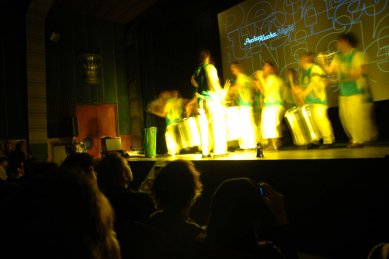
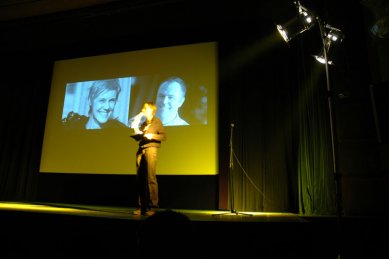
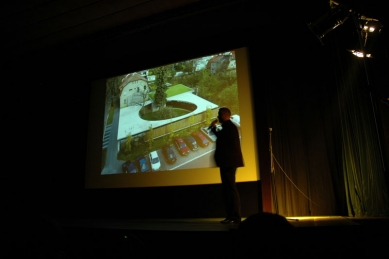
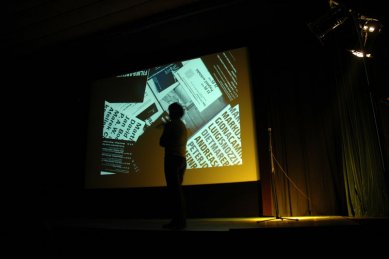

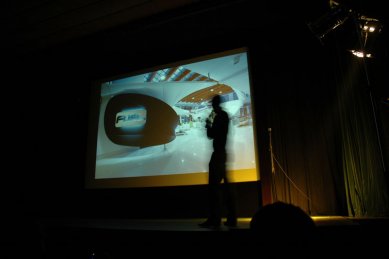
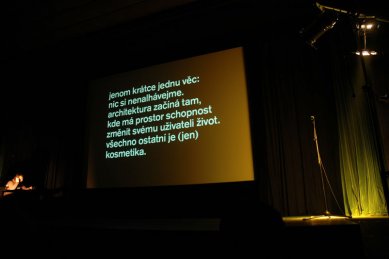
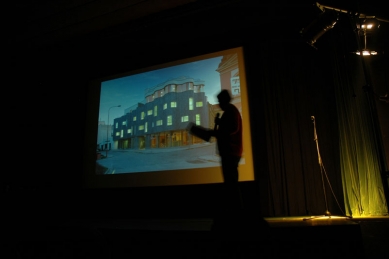
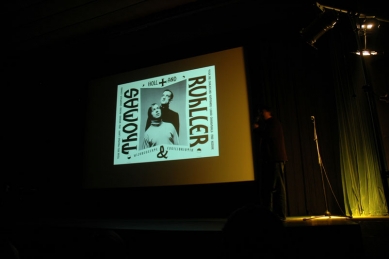
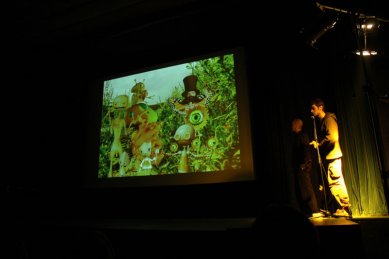
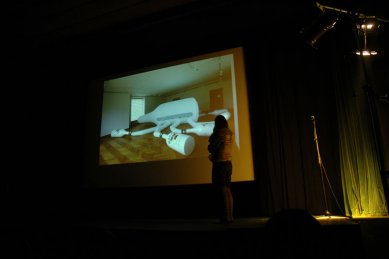
0 comments
add comment










